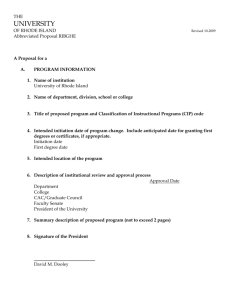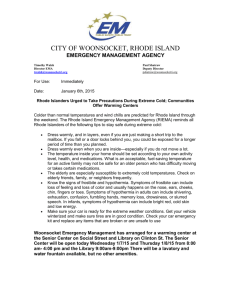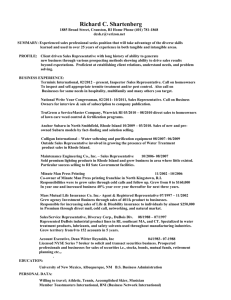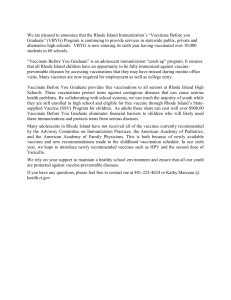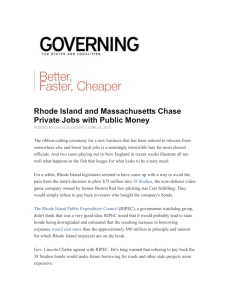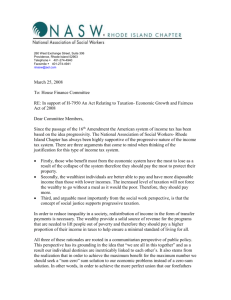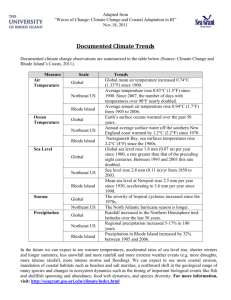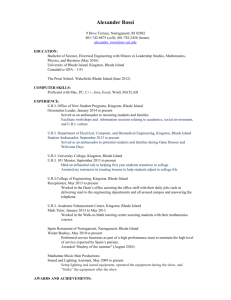File - Adult Education Convening and Research Project
advertisement
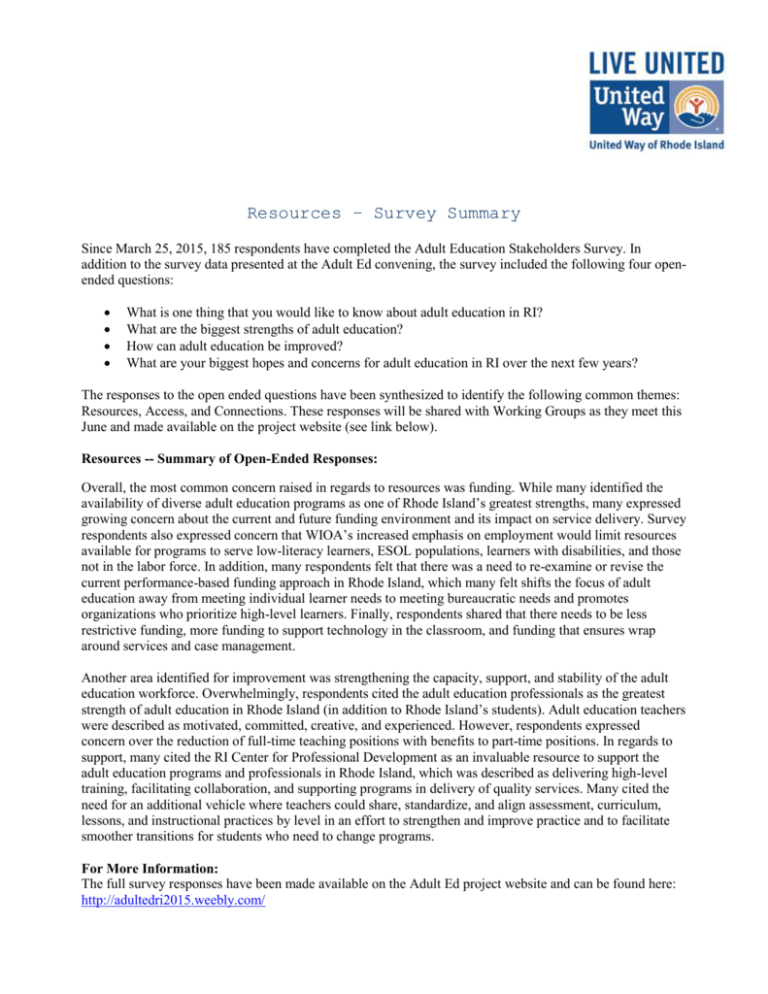
Resources – Survey Summary Since March 25, 2015, 185 respondents have completed the Adult Education Stakeholders Survey. In addition to the survey data presented at the Adult Ed convening, the survey included the following four openended questions: What is one thing that you would like to know about adult education in RI? What are the biggest strengths of adult education? How can adult education be improved? What are your biggest hopes and concerns for adult education in RI over the next few years? The responses to the open ended questions have been synthesized to identify the following common themes: Resources, Access, and Connections. These responses will be shared with Working Groups as they meet this June and made available on the project website (see link below). Resources -- Summary of Open-Ended Responses: Overall, the most common concern raised in regards to resources was funding. While many identified the availability of diverse adult education programs as one of Rhode Island’s greatest strengths, many expressed growing concern about the current and future funding environment and its impact on service delivery. Survey respondents also expressed concern that WIOA’s increased emphasis on employment would limit resources available for programs to serve low-literacy learners, ESOL populations, learners with disabilities, and those not in the labor force. In addition, many respondents felt that there was a need to re-examine or revise the current performance-based funding approach in Rhode Island, which many felt shifts the focus of adult education away from meeting individual learner needs to meeting bureaucratic needs and promotes organizations who prioritize high-level learners. Finally, respondents shared that there needs to be less restrictive funding, more funding to support technology in the classroom, and funding that ensures wrap around services and case management. Another area identified for improvement was strengthening the capacity, support, and stability of the adult education workforce. Overwhelmingly, respondents cited the adult education professionals as the greatest strength of adult education in Rhode Island (in addition to Rhode Island’s students). Adult education teachers were described as motivated, committed, creative, and experienced. However, respondents expressed concern over the reduction of full-time teaching positions with benefits to part-time positions. In regards to support, many cited the RI Center for Professional Development as an invaluable resource to support the adult education programs and professionals in Rhode Island, which was described as delivering high-level training, facilitating collaboration, and supporting programs in delivery of quality services. Many cited the need for an additional vehicle where teachers could share, standardize, and align assessment, curriculum, lessons, and instructional practices by level in an effort to strengthen and improve practice and to facilitate smoother transitions for students who need to change programs. For More Information: The full survey responses have been made available on the Adult Ed project website and can be found here: http://adultedri2015.weebly.com/
